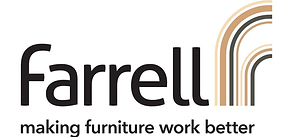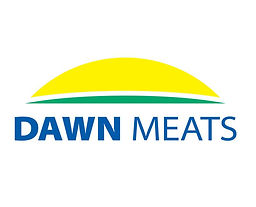
WHAT WE DO
Innovation Pilots
From 2020 to 2022, CIRCULÉIRE actively supported the development of a circular economy in Ireland through a dedicated €1.5 million Innovation Pilot Project Fund. This initiative, backed by our strategic partners DECC, EPA, and EIT Climate-KIC, funded 10 large-scale, system-wide innovation projects within the CIRCULÉIRE network.
The Innovation Pilot Project Fund aimed to identify, test, and scale innovative circular solutions, with a focus on circular manufacturing systems, supply chains, and circular business models.
Over the lifespan of this pilot, nine network participants were awarded funding to explore circularity within their sectors and collaborated with fellow CIRCULÉIRE participants and actors from the external circular ecosystem to bring their projects to life.
To learn more about upcoming calls for proposals, application processes, and deadlines, keep an eye on CIRCULÉIRE's Latest News section (Inc link to news) and social media channels.
See below for an overview of the successful circular economy demonstration projects funded by CIRCULÉIRE's Innovation Pilot Project Fund.
Circular by Design
Project Lead: Design & Crafts Council of Ireland
Project Partner: National College of Art and Design
The global textiles and apparel industry is the joint third highest emitter of greenhouse gases globally and operates in an almost completely linear ‘take-make-waste’ system. To address this challenge, The Design and Crafts Council Ireland (DCCI), the National College of Art and Design (NCAD) and the Creative Futures Academy (CFA) came together to design and launch ‘Circular By Design’; a first-of-a-kind training programme that supports textile and fashion designers, brands and manufacturers to make the transition to circular practices in every step of their design practice, value chain and business model.
In its pilot year, Circular By Design equipped Irish businesses with the necessary knowledge and skills to create materials, products, and entire business models built on circularity principles. Participants gained a foundational understanding of the circular economy and redesign their value propositions, materials, products, services, and business models for a more sustainable future.
Circularising Single Use Plastics
(C-SUP)
Project Lead: Novelplast
Project Partners: Irish Green Labs | Technical University of the Shannon | CÚRAM University of Galway | Connacht-Ulster Waste Regional Waste Office | Eventec | Climate 23
Irish laboratories rely heavily on large quantities of high-quality, carbon-intensive, single-use plastics. Most of this plastic, often polypropylene pipette tips, comes from Germany, the UK, or the US, and is incinerated in Ireland after just one use. A national audit carried out by University of Galway and Irish Manufacturing Research identified these pipette tips as the most common plastic lab waste.
The C-SUP demonstration project tackled this challenge by turning these single-use polypropylene plastics into a valuable feedstock for Irish recyclers. Creating a circular system where lab waste becomes a resource, empowering researchers to minimize their environmental impact.
Through dissemination via the Irish Green Labs network, the project aims to make purchasing recycled polypropylene labware the standard practice across thousands of Irish laboratories.

Do More with Less
Project Lead: Farrell Furniture
Project Partners: Atlantic Technological University Connemara | Office of Public Works
This collaborative furniture take-back and remanufacturing project is an innovative shift towards green procurement by the Irish Government. Through a collaborative effort, Do More with Less, aims to develop and implement circularity within the public sector.
There are two streams within this project. Stream One – Remanufacturing for Continued Use: Obsolete office furniture that was created by Farrell Furniture in the mid 2000’s is retrieved from the OPW. It is then repaired, remanufactured, and redistributed through the public sector. Stream Two – Preserving Design Heritage: The Crannac Chair, a classic chair design that is no longer produced will be studied and reverse-engineered by ATU Connemara. Allowing their future repair and reuse and keeping a classic piece of Irish Design in use for many years to come.
Medical Devices a New Life (MEDAL)
Project Lead: Offerre
Project Partners: FPD Recycling | University of Limerick
The healthcare sector is a significant contributor to environmental pollution, responsible for roughly 4.6% of global greenhouse gas emissions and air pollutants. An increased reliance on single-use medical devices, particularly in high-income countries, has had a large impact on this. The collection high-cost and low-volume of these devices has left traditional take-back schemes are often abandoned by producers.
MEDAL offers a cost-efficient reprocessing system that extends the lifespan of medical devices without compromising on product integrity or strict reprocessing protocols. Designed with key stakeholders and regulations in mind, the system prioritises high performance, user convenience, producer engagement, and overall system integrity.
The Pilot assesses automation solutions for cleaning and de-manufacturing and supports the circular design of products and packaging. The system also provides a cloud-based platform allowing device consumers to interact with the producers.
Upcycled Insulation
Project Lead: Cirtex Ltd
Project Partners: Tipperary County Council | Clothes Pod (https://www.clothespod.ie/) | Interior Creations
Every year, tens of thousands of tonnes of mattresses, furniture, bedding, and industrial offcuts are sent to waste in Ireland. Currently, Ireland has no answer to upcycling this end-of life material. Cirtex is a new Irish company that is seeking to turn this soft padding material into insulation and other useful products that can be further upcycled when they reach their “end of life”.
The Upcycled Insulation project, in collaboration with Tipperary County Council, Clothes POD, and Interior Creations, demonstrates how to effectively collect these materials from the public in a clean and efficient manner and convert it into high-quality insulation for housing and padding for furniture and bedding companies.
This solution not only diverts massive amounts of waste from landfill, but also provides the construction, furniture, and bedding industries with a sustainable alternative for their production needs.




















.png)










